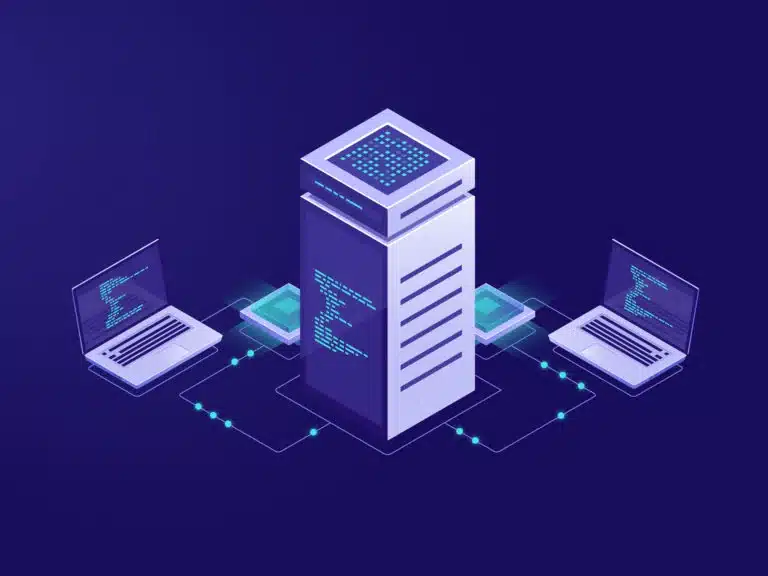How Process Mining Advances CX for Government

Now more than ever, government agencies need to explore new and innovative ways for enhancing all processes to better deliver services to citizens and constituents.
In addition, Customer Experience (CX) is coming more into the forefront with President Biden’s 2021 CX Executive Order, which has resulted in agencies such as the Department of Homeland Security (DHS) exploring the concept of “CX all the things.”
Process mining can play a vital role in advancing CX for any agency. It’s a unique approach that utilizes data to thoroughly analyze and monitor all operational processes. It also identifies new efficiencies for optimizing overall processes for better meeting constituent needs.
We recently sat down with Dr. Julian Krumeich, Senior Director Product Management ARIS at Software AG, and Nelson de La Cruz, Senior Solutions Architect at Software AG Government Solutions, about how process mining advances mission success for government.
They also highlight how the “built for government” ARIS Process Mining offering helps agencies achieve operational excellence with this recently FedRAMP-authorized solution.
Q: Could you please give us a brief overview of what process mining is and how it relates to Software AG’s ARIS Process Mining solution? How does process mining contribute to the optimization of business processes, and what makes it essential for a government agency?
Julian: Process mining is a powerful technology that provides agencies with valuable insights into their business processes. It goes beyond traditional methods of process analysis by leveraging data from various IT systems to automatically create a visual representation of how processes truly unfold in practice.
By doing so, process mining can pinpoint bottlenecks, identify areas of inefficiency, and uncover automation opportunities, helping you to streamline your operations and make data-driven decisions for process optimization.
More than 20 years ago, ARIS pioneered the commercial process mining market, and has proven itself as a leading solution in this field (cf. The Forrester Wave™: Process Intelligence Software & Gartner Magic Quadrant™ for Process Mining Tools).
It offers an integrated suite for digital transformations, allowing you to harness the power of process mining in a modern cloud-native technology stack. Forrester recently confirmed that “Software AG pioneered and still leads with process intelligence. […] Software AG’s platform is the right choice for clients that put processes front and center in their digital transformation journey,” and we are proud that out of the 14 vendors analyzed, we received the highest score in the “Current Offering” category.
Since security is a fundamental requirement, ARIS operates in a highly secure environment and has recently obtained FedRAMP authorization, making it a trustworthy and compliant choice, especially for government agencies handling sensitive data and information.
For government agencies, process mining becomes increasingly critical, since they deal with complex and extensive workflows that involve serving citizens and handling sensitive data.
Process mining can play a pivotal role in identifying inefficiencies in these processes, leading to more efficient service delivery without requiring substantial investments in a suboptimal workflow setup.
The ability to provide citizens with best-in-class digital services is paramount in a technology-driven world, and process mining helps achieve this goal keeping expenses at a minimum.
Nelson: Government agencies use process mining to capture key performance metrics such as “time to benefit,” for example. Improving this measure is an important part of the government’s drive to improve the customer or citizen experience (CX), which has become a key priority area for government.
In addition, since the launch of President Biden’s CX EO in 2021, many agencies are bringing the CX roadmap provided by the President’s Management Agenda (PMA) to life. The PMA is all about improving how government operates and performs by making every citizen and constituent touch point an opportunity to build trust.
Process mining also provides agencies with the ability, using root cause analysis, to focus on why these key CX measures are suffering or degrading. While correlation does not imply causation, where there is smoke, there may be fire. With process mining, government agencies know where to look for it, and can effectively address it.
Furthermore, process mining provides analytics that are based on runtime data, not a “gut feeling.” Government agencies know their processes, and where their bottlenecks exist.
Anecdotally, agencies can tell you that the bottlenecks are proverbially “here and here.”
However, process mining analytics provide agencies with effective data – based on decision-making tools to improve operations and better deliver on their mission.
For example, process mining will tell you that one bottleneck is three times the size of another, as well as guide agencies on where to best deploy resources.
Q: From your perspective as technical experts who work extensively with the U.S. Government, what unique challenges do government agencies face in managing and optimizing their processes, and how can process mining help address these?
Julian: Since government agencies face constant public pressure to minimize overall spending, process mining guides them towards fact-based process optimizations, fostering efficiency gains throughout their entire organizations.
By having process mining identify automation potential within your governmental workflows, you can easily prioritize the most effective automation projects to not headless jump into automation actionism.
We consider ARIS to be the ideal candidate to spot promising automation potential within an agency’s business processes, since Gartner has recently ranked us 1st in this use case in their Critical Capabilities report for Process Mining.
Moreover, process mining is not only your helping hand to spot quick wins by identifying automation opportunities, it also assists in navigating through an agency’s digital transformation journey – transitioning from analog government services to fully digital, self-service offerings.
In tying back to what Nelson was saying about government CX, it also ensures the best possible experience for citizens.
We also consider ARIS to be the first and only business transformation suite in the market with Gartner ranking us as 1st in the Digital Transformation use case.
With ARIS, we support your entire process and transformation life cycle by deeply integrating process mining with all adjacent Business Process Management components, such as process design, simulation, and roll-out capabilities, providing everything needed for successful transformation initiatives, and building up a Digital Twin of Your Organization (DTO).
In contrast to single-focused process mining vendors, ARIS does not stop at generating data-driven insights – it offers all the necessary components to convert them into a successful digital transformation.
Furthermore, adherence to laws and regulations is of utmost importance for any government agency. Process mining acts as a safeguard in this regard, ensuring that your processes are compliant with the relevant legal requirements. By providing an accurate and detailed view of process execution, process mining enables you to identify and address potential compliance issues proactively.
Nelson: Process mining’s most fundamental use case is one of discovery. In many government agencies, processes are being executed within custom-developed systems or commercial off the shelf (COTS) products with heavy customization.
These “black boxes” obscure how these processes are executed. In addition, developers and development teams have left projects as they retire or as systems enter their operations and maintenance (O&M) phases. Using process mining, this “reverse modeling” effect helps agencies open the black boxes and document how processes are being executed.
This documentation helps agencies maintain these systems for the long-term, and enhance documentation for how these systems support agencies’ missions and government regulations.
Q: In practical terms, could you share with us some of the key benefits that ARIS Process Mining has delivered to its government agency clients? How has it helped improve their efficiency, transparency, and regulatory compliance?
Julian: Based on our experience, we have observed that the public sector shares some common process domains with other sectors, such as Procurement, Service Management. These serve as a key channel to citizens, along with internal HR processes and maintenance. This is something that we are currently working on with defense ministries in Europe.
The public sector also has unique processes, specific to its nature.
For instance, tax handling involves tasks like taxpayer registration, tax submission, and appeals. We are currently working with a tax authority in the Middle East to streamline these processes.
Additionally, government-directed citizen services, such permit requests, are distinct to the public sector. For example, we collaborate with a municipality agency in the United Arab Emirates to measure costs across their entire permit request process, ensuring data-backed transparency on service and employee productivity.
This initiative enhances awareness of service efficiency, ultimately increasing the overall service level and citizen experience. Our customer often refer to this as “connecting data into smiles.”
Nelson: I would like to echo Julian’s comments about similarities between government agencies and commercial organizations. Claims processes of commercial organizations are similar at a high level of abstraction, and even at a medium level of detail to government agencies’ claims processes. Procure-to-pay processes may also differ in the details, but process mining dashboards created for a commercial customer will work satisfactorily for a government agency, at least at a high level.
With this similarity in mind, Software AG Government Solutions has created a gallery of accelerators to support the quick deployment of ARIS Process Mining, which government agencies can leverage.
One accelerator of note is “Issue to Resolution” based on using ARIS Process Mining with ServiceNow. Delays in ticket resolution can be clearly quantified and the AI-based root cause miner can be used to determine potential reasons for delays using ticket characteristics.
Q: Could you please shed some light on the tangible outcomes driven by process mining solutions for government? Can you share some examples where ARIS Process Mining made a significant impact, and/or any uses cases?
Nelson: I believe an underestimated use case for government agencies is compliance, which we can expand upon from the prior question. Essentially, ARIS Process Mining supports the creation of compliance rules, allowing process data to be mined and analyzed to determine if compliance rules were violated.
Agencies can use this as part of their risk mitigation strategy by automating the detection of compliance rule violations. By connecting ARIS Process Mining directly to system log data or received by overnight batch, these compliance rule violations may be detected in time to take remedial action or minimize harm.
In addition, by leveraging the “Insight to Action” functionality of ARIS Process Mining, any remedial actions can be automated including policy-relevant notifications and escalations.
Q: Considering the critical nature of government data, how does Software AG ensure the security and privacy of the data within its ARIS Process Mining solution? Also, what specific security measures and certifications does ARIS Process Mining possess to comply with the stringent security standards of the U.S. government?
Julian: We prioritize the security and privacy of your data as it fuels our process mining engine!
All agency data is secured-at-rest via industry standard encryption algorithms, as well as in transit via secure transfer protocols.
Embracing privacy by design, your data is protected from unauthorized access with permissions that can be set down to an individual process instance level for user groups as well as individual users.
Highly critical data can also be pseudonymized before transferred into our cloud or being pseudonymized throughout our powerful data transformation layer. The effectiveness of our data security is ensured by penetration testing and regular third-party audits.
To verify service compliance, we obtained all relevant certification such as ISO/IEC 27001:2013, ISO/IEC 27017:2015, and ISO/IEC 27018:2019, as well as achieved key compliance controls and objectives, which is certified by independent third-party examination reports such as SOC3.
Q: Software AG’s ARIS Process Mining solution was recently added to the company’s FedRAMP offering, and is the only FedRAMP authorized process mining solution. Please tell us why this is important to our government customers and prospects.
Julian: The Federal Risk and Authorization Management Program (FedRAMP) was established in 2011 to provide a cost-effective, risk-based approach for the adoption, and use of cloud services by the federal government.
With ARIS being FedRAMP authorized, you can confidently utilize our technology with the assurance of top-notch security. This authorization allows you to leverage all the benefits of a modern cloud service, including high-service availability without the need to worry about hosting and managing the service environment. This ensures optimal efficiency with cost savings, providing you with a seamless and secure user experience.
Nelson: I would also like to add that to achieve and maintain FedRAMP certification, ARIS Process Mining complies with over 300 controls aligning with NIST FedRAMP policy. ARIS Process Mining for the U.S. Government runs in the AWS U.S. Government Cloud and is maintained and operated by U.S. citizens. This allows our federal customers to have peace of mind knowing that their data is safe.
Q: Integration of process mining insights into other data-driven decision-making has been seen as a game-changer in various industries. Can you explain how such integration would benefit government agencies? What kind of impact could it make on their strategic decisions and operational effectiveness?
Julian: One increasingly relevant use case involves applying automated rule checks to business processes. For instance, to ensure that service instances like citizen payouts comply with legal legislation. Without process mining, this activity is typically manual and costly, or compliance audits are based on limited data samples.
However, with ARIS Process Mining, these checks can be automated, allowing for a timely and complete assessments. Any violations can trigger corrective or even preventive actions, making this approach invaluable for ensuring compliance with, for instance, laws governing tax, social benefits, or building code permissions.
Nelson: Given a richer data set, ARIS Process Mining can also be more insightful with its AI-enabled root cause miner. For example, ARIS Process Mining supports Snowflake as a data source. Snowflake data could be mined by ARIS Process Mining to find correlating factors causing processing delays, which helps government agencies to hone in on process improvements including training, automation, or prompt detection to minimize or eliminate delays.
We would like to thank Julian and Nelson for sharing their insights with us. To learn more about Software AG Government Solution’s “built for government” ARIS Process Mining solution, please click here.
Want to keep up with all things Software AG Government Solutions?
Share your email address below.

View our upcoming events and on-demand webinars







